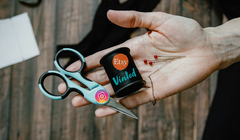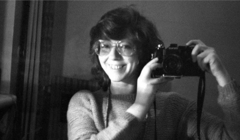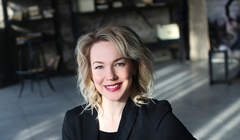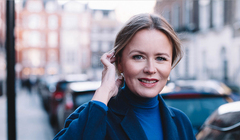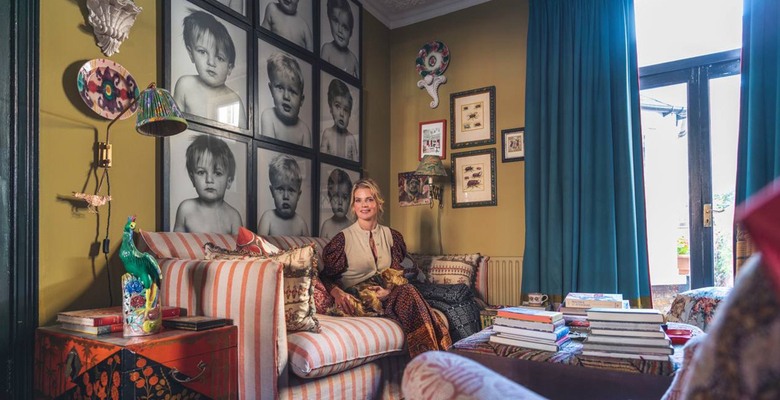
Of Russian aristocratic origin, Countess Alexandra Tolstoy-Miloslavsky is a TV host, entrepreneur, and member of the Royal Geographic Society who, unfortunately, gained fame in Russia due to her tumultuous divorce. Now the countess lives in London with her three children, where she works on creative collaborations with famous brands and organises adventurous horse-riding tours of Kyrgyzstan. In an interview with Kommersant UK, Alexandra told us about her family, traditions and business.
Tell us about your childhood: who brought you up and where did you receive your education?
I was raised by my parents. My mother is English. My father is of Russian origin, but he grew up here; his family moved to Britain when he was seven. Our family lived in the country, about three hours from London, where we had ponies, played a lot outside and read, so I’d say we had a typical English upbringing. But Dad always reminded us of our origins and told us there were famous writers in the family. He was a professional historian and he did a lot to cultivate our appreciation of literature; he read to us and bought different books in Russian, French and English. At the age of 11, I was admitted to Down House, a selective girls' school in Berkshire attended by Kate Middleton. I had wanted to go there myself. At the time, education for girls was not as serious as it was for boys, but our school was more intellectual and we studied hard. In 1992, before I went to Edinburgh University, Dad sent me to Russia. We organised an exchange with the family of the Russian actor Vasily Livanov: he came to live with our family and I spent half a year with them. My uncle, Dad’s younger brother, Andrei Tolstoy-Miloslavsky, introduced me to the Livanovs. He had worked in Moscow since the 1980s. Now he lives in Armenia. Despite the Russian capital being an inhospitable and severe city at that time, with queues and few shops or goods, I consider myself fortunate as living with the Livanovs was very interesting. Many famous writers, artists, actors and directors visited their house. In many ways, my first trip to Russia determined my choice of future profession, as previously I had planned to study philosophy and English literature, but I ended up studying Russian language and literature (I received a Master of Arts in Russian). At first, I didn’t understand why Dad was sending me off to Russia as I barely spoke the language; of course, I had read a lot but it was an unknown country for me. But after I came back, I found that I was tied to Russia for good. When I went out there again in 1994, after two years studying at university, I moved in with the Livanovs once more on a year-long placement. Everything had changed a lot in those two years and it had become possible to travel around the country. I spent a month on Mount Elbrus, I went to the Crimea and, for the first time, I visited Yasnaya Ployana [the former home of Leo Tolstoy]. While there, I met my relative Vladimir Tolstoy, who was then the director of the house museum. After that, we regularly travelled to the estate for gatherings of Tolstoy family members from all over the world.
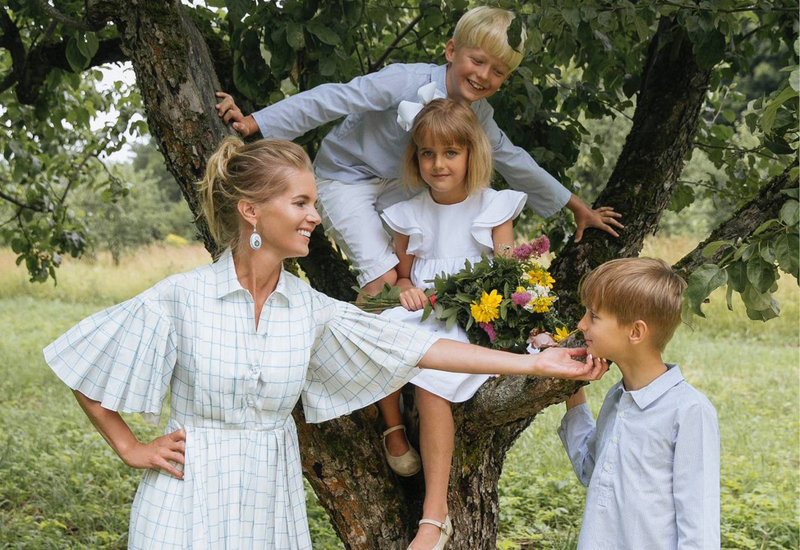
What traditions exist in your family? What does being a descendant of Leo Tolstoy mean for you?
In 2017, I travelled to the estate with the children. About 50 Tolstoy descendants came to the gathering that year. Although my children were still very small, they really enjoyed it. I have always insisted that they should study Russian. They went to the Azbuka Russian language nursery in London. They had a wonderful Russian governess who taught them and read them many of the works of Tolstoy, Pushkin and Chekhov. They spoke Russian well when they were little, but then their governess stopped coming to Britain. Now my sons have again become interested in studying Russian, for which I’m very pleased. There was a time when they used to ask ‘Why do we need Russian? We live in England and we study at a French school’. In my view, it’s important to preserve traditions (my children are now the only Orthodox members of our family), and this includes the language. I see many families who have no connection to their ancestors or their roots and this seems strange to me. That’s why my children are still having Russian lessons. My elder son, Alexey, who is 14, said that in the future he wants to go to Russia for half a year to study the language. He loves to repair and restore technology and computers. My second son, Ivan, who is 13, wants to join the army and join the Royal Scots Dragoon Guards regiment, whose honorary commander was once Nicholas II. Back then, it was called the Royal Scots Greys cavalry regiment. Ivan plays the bagpipes in the Scottish orchestra at school. He loves nature, travelling and camping and I think that he’d like to work for me after he finishes school. My daughter Maria, who’s 11, speaks Russian well. It seems to me that her interest was sparked by her trips to Kyrgyzstan, where I run a business.
Have you encountered any cases of Russophobia in England since the start of the war in Ukraine? Many business people have complained that everything Russian is now regarded with suspicion.
I haven’t experienced anything personally. Of course, I was brought up as an Englishwoman and all my friends are English. They are naturally reserved and they value Russian culture and literature. Still, my children go to a French school where there are several Russian children and the mother of one of them came up to me and said that everyone in the school was treating her offspring badly. This is despite her children having a French surname, unlike mine. Besides anything else, the father of my children is Russian, and he’s known to have had links to Putin. I asked my children if they had had any problems because of that and they said that everything was fine and that they are treated very well. I worried about the Cathedral of the Dormition of the Mother of God and all Saints at Ennismore Gardens, in London, which we attend. It’s acquired a new bell which rings very loudly, but none of our neighbours have complained. Priests from both Russia and Ukraine serve in the church and everything is so peaceful there.
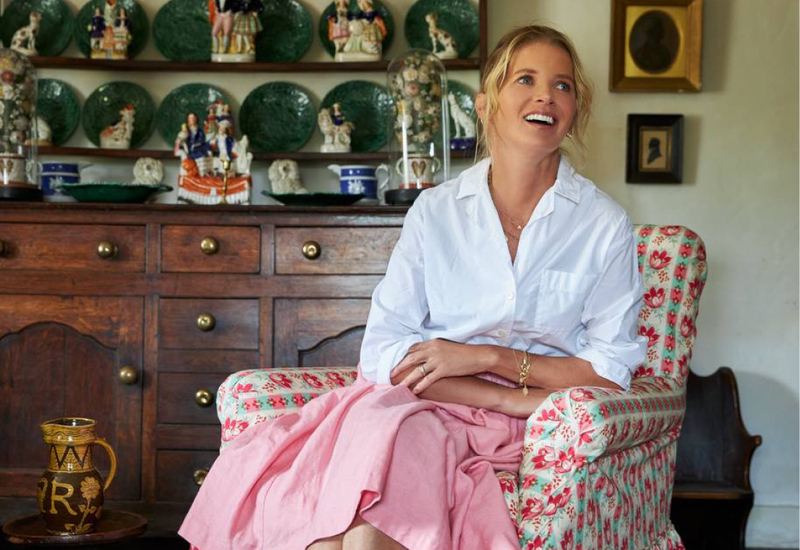
Your company, The Tolstoy Edit, sells antiquities and vintage goods. You have a collection of various designer pieces which you have found on your travels. What countries have left the greatest impression on you? What interesting antiquarian and vintage objects have you come across?
My fascination began on a trip to Moscow. Vasily Livanov’s wife, Elena, is an artist and animator who makes puppets for cartoons. She had exquisite taste and I picked up a lot from her. Elena has a collection of suzanis, hand-embroidered decorative textiles which are mostly made in Tajikistan, Uzbekistan and Iran. In Moscow in the 90s, these items were extremely rare and, besides, no one valued them. The next step, which piqued my interest further, was a horse and camel-riding tour along the Silk Road in 1999. In Uzbekistan, I first saw a lot of beautiful embroidery with floral decoration of a kind I had never seen before. A second trip which had a great effect on me was a horse-riding journey from Kazakhstan to Moscow. Along the way, we passed villages with little wooden houses with carved and painted facades in which all the furniture was handmade. I used to buy a lot of objects of interior decor from the north of Russia in Moscow as, in the West, it has become difficult to find Russian furniture. In my home, I only have one antique Russian cupboard. Now I mostly sell articles from Hungary and Sweden, where universal folkloric motifs familiar to all pre-dominate. In Russia, I had a favourite cupboard and table made at Abramtsevо (the joiner’s workshop has been in business there since the 1920s), but they can’t be taken abroad. I also buy things in Central Asia and Turkey, in Istanbul, where many vintage textiles from Uzbekistan and Kyrgyzstan are sold. In my London home, I have a favourite carpet. It’s beautiful, comfy and simply ornamented. The wife of my tour guide in Kyrgyzstan made it for me.
What are your ties to Kyrgyzstan and what draws you to this country? What gave you the idea of running horse-riding tours there? And what brought about your love of horses?
My main business is based in Kyrgyzstan; organising horse-ring tours. I had a pony when I was a girl. I loved horses, but I didn’t ride them in Britain. Leo Tolstoy was always going to Bashkortostan and he really appreciated his interactions with the local Bashkirs as he believed that they had a deep understanding of life and its meaning. Wise people also live In Kyrgyzstan; they live peacefully, they are contented with their lot and don’t wish for anything more. During my first trip along the Silk Road we first passed through Turkmenistan, then Uzbekistan and when we got to Kyrgyzstan, we set off into the mountains at once. I couldn’t believe that such rich beauty could exist; carpets of flowers; tulips, peonies, deep blue lakes and unbelievably high mountains. I gave a presentation to the Royal Geographic Society and people came up to me and asked if I could organise holiday tours. That’s how I ended up with this business. My first trip out there was in 2002 and I worked there for seven years, but then there was a break when I had my children. You see, their father didn’t want me to work. During Covid, I started to bring the business back to life. It was hard, but by 2022, everything was completely back to normal. Despite the long gap, I still work with the same tour guides, they are shepherds from a village near the Sary-Chelek Nature Reserve with whom I started the business. They are very reliable and smart and they can talk captivatingly about the region and the animals that live there. A whole team of cooks work for me. Everything is organised rather luxuriously; the dishware, the tents, the tables and the tablecloths. Tours cost from £5,015 and last nine days; six days on horseback and three are spent exploring Bishkek; it has a good Oriental bazaar.
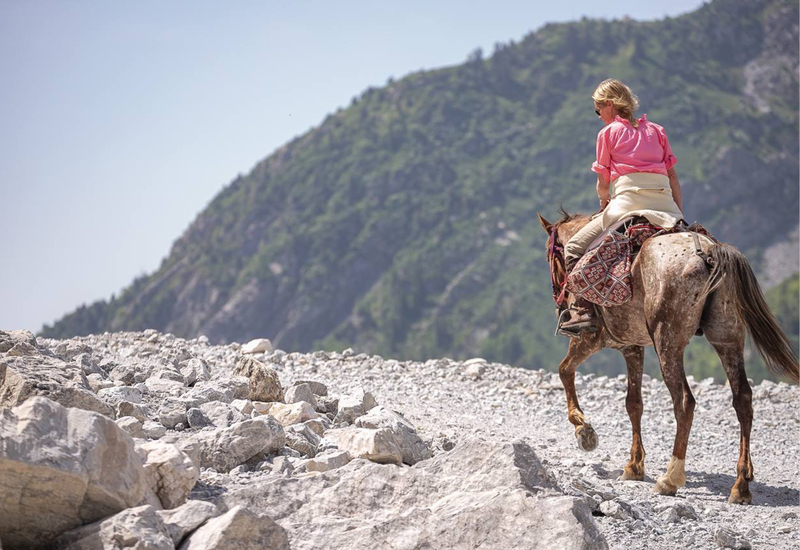
What are your favourite meals from the menu on the tour?
Plov [pilau] and pelmeni. My daughter went with me last year and she learnt to make these dumplings. The food is always delicious, it’s a mixture of Russian, Uzbek, Kyrgyz and Uyghur cooking with a dash of Chinese and Korean cuisine; Manti [large dumplings], pelmeni, plov and local fruit and vegetables.
How many people take part in a tour? What countries do your clients come from?
12 people take part in each journey, including children over ten. The local mountain horses are very docile, well-trained and thinner than English ones (usually their width is from 13.2 to 14.2 inches), so you don’t get tired when you sit for long periods in the saddle, nevertheless, riding skills are essential, otherwise, it’s just dangerous; you need to be able to ride at a walk, a trot and a gallop. The people who come are very varied, there are successful professionals and businessmen, mostly from Europe, with some from the States. There are a lot of English people because they love travelling and horses.
You have created collaborations with leading brands such as Brora and Love Your Home. Do you plan to take part in any more similar projects?
Yes, I do, because, for me, it’s a unique chance to do something creative. I’m collaborating with Brora using the designs of the Russian artist Ivan Bilibin. He’s known for his illustrations of the works of Pushkin. I really respect Brora. While we were working on the project, the war started, but they said that they would continue and we raised money for Ukraine. I found an antique design of Russian fabric for Love Your Home and they used it in a collection of objects of interior design and afterwards, it was in great demand. Most people understand that culture is not linked to politics and they receive these ideas well. I’m currently working on a collaboration with the English footwear brand Penelope Chilvers. We are using Kyrgyz designs on the felt (a typical Kyrgyz material) and we’re making felt slippers with embroidery, as well as bags and boots; these articles will be on sale in September. I like collaborations because they allow me to use my skills and be creative. There will soon be another one (I like to work on several at once; for instance one on clothes and shoes, and another on objects of interior design). This is with a company that produces furniture: we are creating beautiful beds with headboards in the shape of the onion dome of a Russian church. This year I have also become the ambassador of the Eponine London brand, which produces zippered clothing (Kate Middleton wears their outfits).
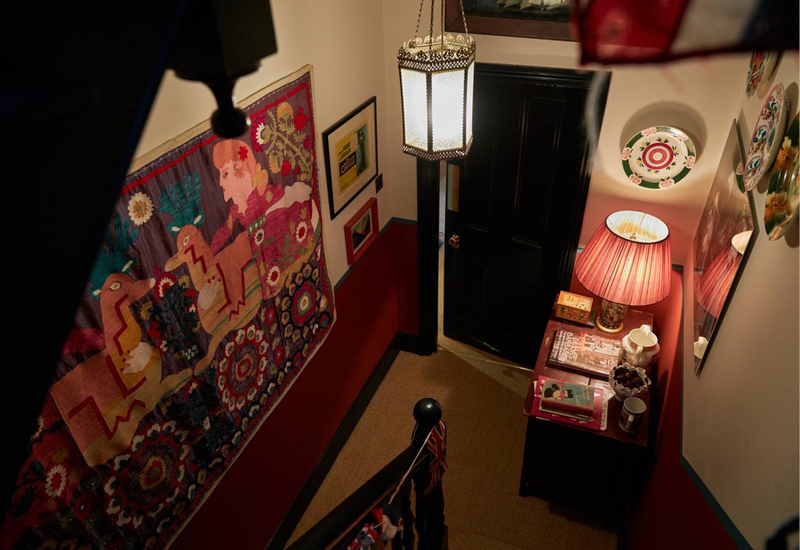
You have three main areas of business; renting out your property in the Cotswolds near Oxford, the sale of antiquities and vintage items and also organising horse-riding tours around Kyrgyzstan. On top of that, you’re a mother with three children. How do you manage to find time for your business activities and your family?
I have my dacha, or country house, in the Cotswolds. I bought it 20 years ago. Renting it out isn’t so much a business, as a form of passive income which covers the costs of maintaining it. I wouldn’t like to sell the house because my children are very attached to it and it’s our only property (we rent our house in London). But I couldn't live in the Cotswolds with my children full time; there’s no school nearby and it’s difficult for me to work from there. My children and I have holidays there from time to time.
Three children and a dog are quite a handful. I wasn’t drawn to business by a carefree life, and that’s probably the most striking thing about my situation. When the father of my children went away, he left us without any money. I’m actually glad that things worked out like that, otherwise I wouldn’t have had to resurrect my business and go back to work. It was terribly stressful, but I coped…and I love to work! It led me to meet some really talented people. Of course, it was tough. I was worried and the kids were concerned, but now they can see that things are going well and it seems to me that it’s a good example for them. They are proud of me.



